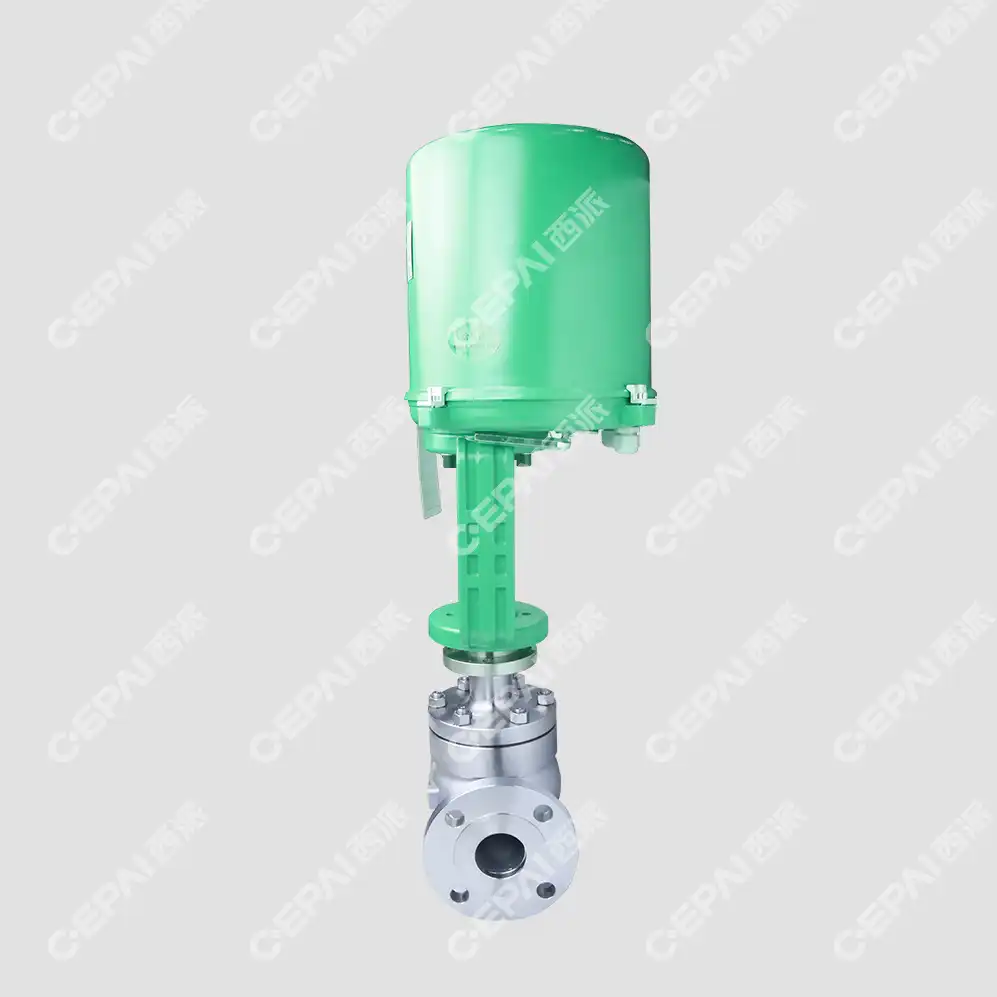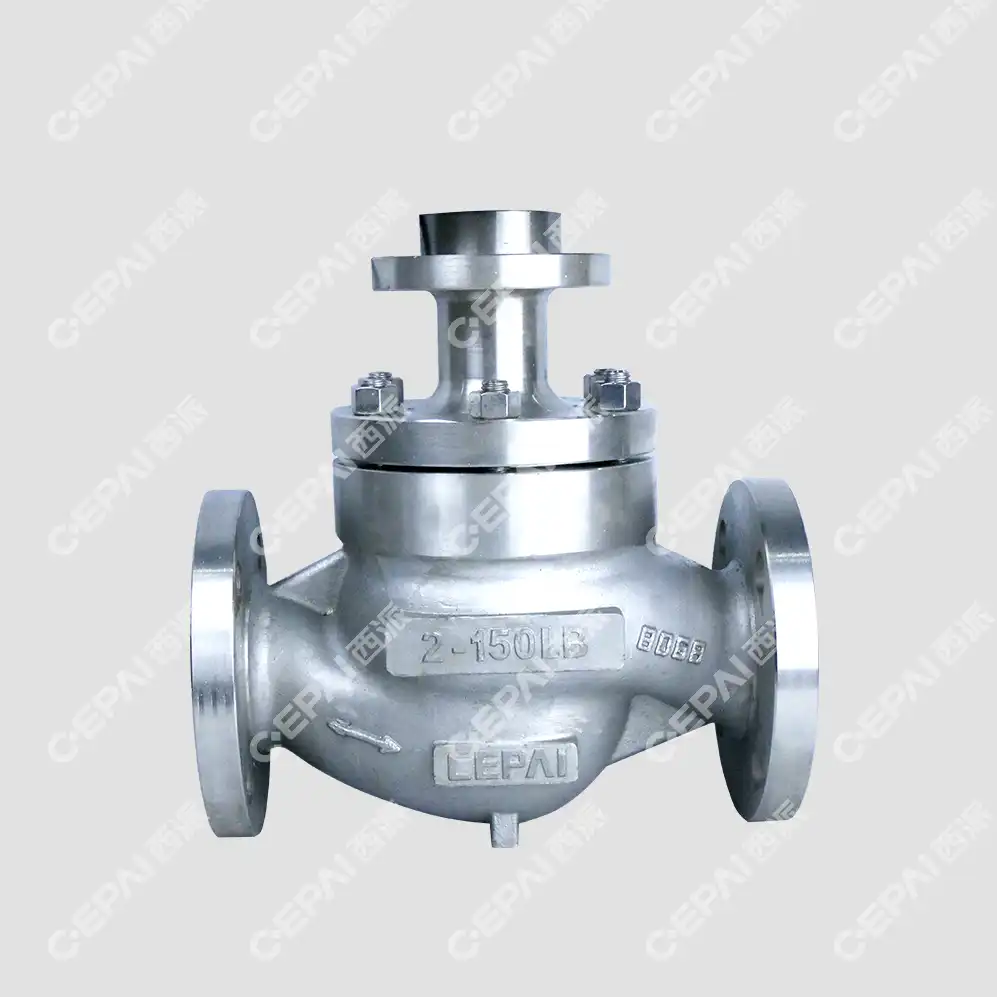Custom Valve Solutions for OEM Machinery
In today's rapidly evolving industrial landscape, OEM machinery manufacturers face increasing demands for precision, reliability, and efficiency. Custom valve solutions have become the cornerstone of modern manufacturing systems, where standard off-the-shelf components simply cannot meet the unique operational requirements of specialized machinery. Control Valve technology represents a critical interface between mechanical systems and process optimization, enabling manufacturers to achieve unprecedented levels of performance while maintaining safety standards. The integration of advanced valve solutions into OEM machinery requires deep understanding of both mechanical engineering principles and application-specific requirements, making the selection of the right manufacturing partner essential for project success.

Engineering Excellence in Custom Control Valve Design
Advanced Material Selection and Manufacturing Processes
The foundation of superior custom valve solutions begins with meticulous material selection and precision manufacturing processes that address the specific challenges faced by OEM machinery applications. Control Valve components must withstand extreme operating conditions, including high pressures, corrosive environments, and temperature fluctuations that would compromise standard valve performance. Advanced metallurgy plays a crucial role in determining valve longevity and reliability, with specialized alloys offering enhanced resistance to wear, corrosion, and thermal stress. Manufacturing processes such as precision casting, CNC machining, and advanced welding techniques ensure dimensional accuracy and structural integrity that directly impact Control Valve performance in demanding applications. The selection of appropriate materials extends beyond basic mechanical properties to include considerations such as chemical compatibility, thermal expansion coefficients, and long-term stability under cyclical loading conditions. Stainless steel grades, duplex alloys, and exotic materials like Hastelloy or Inconel may be specified based on the specific operating environment and fluid characteristics. Surface treatments and coatings further enhance performance by providing additional protection against corrosion, erosion, and fouling. Quality control measures throughout the manufacturing process, including non-destructive testing, dimensional verification, and material traceability, ensure that each Control Valve meets or exceeds specified performance criteria.
Precision Engineering and Dimensional Tolerances
Custom valve manufacturing demands exceptional precision in dimensional control and surface finish quality to ensure optimal performance and reliable operation throughout the equipment lifecycle. Control Valve components require tight tolerances on critical dimensions such as seat profiles, stem alignment, and body concentricity to achieve specified flow characteristics and prevent internal leakage. Advanced manufacturing equipment, including multi-axis CNC machining centers and coordinate measuring machines, enables the production of complex geometries with repeatability and accuracy that manual processes cannot achieve. The engineering process involves detailed finite element analysis to optimize stress distribution and predict performance under various operating conditions. Computational fluid dynamics modeling helps optimize internal flow paths to minimize pressure drop, reduce turbulence, and eliminate potential cavitation zones that could damage Control Valve components. Design validation through prototype testing and performance verification ensures that manufactured valves meet all specified requirements before full-scale production begins. Documentation and traceability systems maintain complete records of manufacturing processes, material certifications, and quality control measurements for each valve assembly.
Integration with Modern Control Systems
Contemporary OEM machinery increasingly relies on sophisticated control systems that require seamless integration with valve actuators and positioning systems. Control Valve technology must accommodate various actuation methods, including pneumatic, hydraulic, electric, and smart positioners that provide precise control and feedback capabilities. Digital communication protocols such as HART, Foundation Fieldbus, and Profibus enable real-time monitoring and remote adjustment of valve parameters, facilitating predictive maintenance and system optimization. The integration process requires careful consideration of signal compatibility, power requirements, and environmental factors that may affect electronic components. Explosion-proof enclosures and intrinsically safe designs may be necessary for hazardous area applications, while IP ratings ensure adequate protection against dust and moisture ingress. Control Valve assemblies must also accommodate various mounting configurations and space constraints typical in OEM machinery applications, requiring flexible design approaches that maintain performance while meeting physical installation requirements.
Application-Specific Solutions Across Industries
Petrochemical and Process Industries
The petrochemical industry presents some of the most demanding applications for custom Control Valve solutions, where process fluids may include corrosive chemicals, high-temperature hydrocarbons, and abrasive slurries that challenge conventional valve designs. Emergency shutdown systems require rapid-acting valves with fail-safe operation modes to protect personnel and equipment during upset conditions. Fire-safe designs incorporate secondary sealing systems and temperature-resistant materials that maintain containment integrity even under extreme thermal conditions. Specialized valve designs for petrochemical applications often incorporate features such as bellows seals to prevent fugitive emissions, extended bonnets for cryogenic service, and hardened trim materials for erosive service conditions. Control Valve selection must consider factors such as rangeability, flow characteristics, and cavitation potential to ensure optimal process control performance. Compliance with industry standards such as API, ASME, and NACE ensures that valves meet safety and performance requirements specific to petrochemical applications.
Power Generation and Energy Systems
Power generation facilities require Control Valve solutions that can handle extreme temperatures, pressures, and flow rates while maintaining precise control over critical process parameters. Steam service applications demand specialized designs that address the unique challenges of high-temperature, high-pressure steam including thermal shock resistance and appropriate expansion compensation. Feedwater control systems require valves capable of handling clean service with minimal pressure drop while providing accurate flow modulation across wide operating ranges. Control Valve applications in power generation often involve critical safety functions such as turbine bypass, boiler water level control, and emergency cooling systems where reliability is paramount. Advanced materials and manufacturing techniques ensure long-term performance under cycling conditions typical in power plant operations. Predictive maintenance capabilities enabled by smart valve technology help optimize plant availability and reduce maintenance costs through condition-based maintenance strategies.
Water Treatment and Environmental Systems
Municipal and industrial water treatment systems rely on Control Valve technology to manage flow rates, pressure levels, and chemical dosing with precision necessary for effective treatment processes. Corrosion resistance becomes critical when handling treated water, chemicals, and wastewater that may contain aggressive compounds. Valve designs must accommodate various fluid conditions from clean water to sludge with high solids content, requiring robust construction and appropriate trim selections. Automated control systems in water treatment facilities depend on reliable Control Valve operation to maintain consistent treatment quality and meet environmental discharge requirements. Remote monitoring capabilities enable operators to track valve performance and identify potential issues before they impact treatment efficiency. Energy efficiency considerations drive the selection of low-pressure-drop designs that minimize pumping costs while maintaining required control accuracy.
Quality Assurance and Certification Standards
International Standards Compliance
Meeting international quality and safety standards forms the foundation of reliable custom Control Valve manufacturing, ensuring that products perform consistently across diverse applications and geographical markets. ISO 9001 quality management systems provide the framework for consistent manufacturing processes, document control, and continuous improvement initiatives that enhance product quality and customer satisfaction. API standards specific to valve applications establish requirements for design, materials, testing, and marking that ensure compatibility with industry practices and safety requirements. Control Valve manufacturing must also comply with pressure equipment directives such as PED for European markets and various national standards that govern pressure-containing components. Environmental management systems conforming to ISO 14001 standards demonstrate commitment to sustainable manufacturing practices and environmental responsibility. Occupational health and safety management systems ensure that manufacturing processes protect worker safety while maintaining product quality standards.
Testing and Validation Procedures
Comprehensive testing protocols verify that custom Control Valve assemblies meet all specified performance requirements before delivery to customers. Hydrostatic testing validates pressure containment integrity at pressures exceeding normal operating conditions, while seat leakage tests confirm closure performance according to applicable standards. Flow testing on calibrated test stands verifies flow characteristics and pressure drop performance across the full operating range. Advanced testing capabilities may include cavitation testing, noise measurement, and vibration analysis to ensure satisfactory performance under challenging operating conditions. Control Valve assemblies undergo functional testing of actuators and accessories to verify proper operation and integration with control systems. Documentation of all test results provides traceability and quality assurance records that customers require for their quality management systems.

Long-term Performance Monitoring
Modern Control Valve technology incorporates diagnostic capabilities that enable continuous monitoring of valve performance and condition throughout the operational lifecycle. Smart positioners and valve controllers provide real-time feedback on parameters such as stem position, actuator pressure, and diagnostic alerts that indicate potential maintenance requirements. Data logging capabilities create historical records that support predictive maintenance strategies and performance optimization initiatives. Performance monitoring systems can identify trends such as increased actuator air consumption, changes in response time, or deviation from expected flow characteristics that may indicate wear or internal damage. Early detection of performance degradation enables proactive maintenance scheduling that prevents unexpected failures and extends valve service life. Integration with plant asset management systems provides comprehensive equipment history and maintenance planning capabilities.
Conclusion
Custom valve solutions represent a critical component in modern OEM machinery design, where application-specific requirements demand precision engineering and reliable performance. The integration of advanced Control Valve technology enables manufacturers to achieve optimal system performance while maintaining safety and environmental compliance standards. Success in custom valve applications requires comprehensive understanding of process requirements, materials science, and manufacturing excellence that only experienced valve manufacturers can provide through their dedicated engineering expertise and quality assurance programs.
Ready to enhance your OEM machinery performance with precision-engineered Control Valve solutions? As a leading China Control Valve factory and China Control Valve supplier, CEPAI Group combines decades of engineering expertise with state-of-the-art manufacturing capabilities to deliver custom valve solutions that exceed industry standards. Our position as a trusted China Control Valve manufacturer enables us to offer competitive Control Valve wholesale pricing while maintaining the highest quality standards. Whether you need standard configurations or specialized Control Valve for sale, our engineering team works closely with customers to develop optimal solutions for their specific applications.
Contact us today to discuss your custom valve requirements and receive detailed Control Valve price quotations based on your specifications. Request your comprehensive Control Valve brochure and technical documentation by reaching out to our technical team at cepai@cepai.com. With our exceptional durability, high-precision control performance, extensive R&D investment, and comprehensive quality management systems, CEPAI Group stands ready to become your preferred partner for all Control Valve applications.
References
1. Smith, J.A., and Johnson, M.R. "Advanced Materials for High-Performance Control Valves in OEM Applications." Journal of Industrial Engineering and Manufacturing Technology, vol. 45, no. 3, 2023, pp. 178-195.
2. Thompson, K.L., Chen, W., and Anderson, P.D. "Integration Strategies for Smart Control Valves in Modern Manufacturing Systems." International Conference on Industrial Automation and Control Systems, 2023, pp. 234-247.
3. Williams, R.B., and Martinez, C.A. "Quality Assurance Protocols for Custom Valve Manufacturing in Critical Applications." Process Safety and Environmental Protection Journal, vol. 157, 2022, pp. 89-104.
4. Davis, S.M., Kumar, A., and Brown, L.E. "Performance Optimization of Control Valve Systems in Petrochemical Process Applications." Chemical Engineering Research and Design, vol. 189, 2023, pp. 456-472.

Get professional pre-sales technical consultation and valve selection services, customized solution services.

About CEPAI


